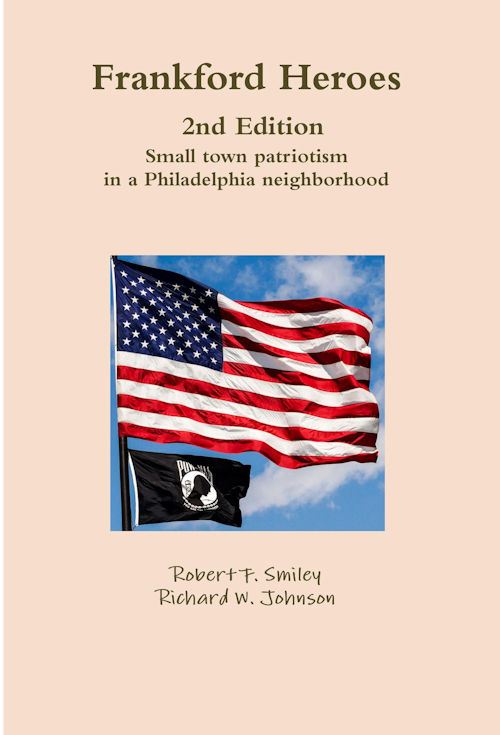 Joe Menkevich provided these links to more information about the Lydia Darragh story. The story of Captain McClane is especially interesting. The link to his story is here.
Joe Menkevich provided these links to more information about the Lydia Darragh story. The story of Captain McClane is especially interesting. The link to his story is here.
Capt. Allan McLane is a notable and interesting
character. He was so popular and interesting that
Peale painted his portrait.Encounter between Capt. Allan McLane and a British
dragoon at Frankfort, near Philadelphia. Painting by
James Peale. 111-SC-91311. (revolutionary_war_039.jpg)
Free black & white Download here. Color here.





“Philadelphia, March 5, 1782.
Captain Mc. Lane having informed me that he and some of the Officers who acted under him have had suits brought against them for the seizure of Horses and sundry Articles of provision near the lines of the Enemy while they had possession of this City. I think it but Justice as well as my duty to declare that from the Month of November 1777 untill the evacuation of this City in June following Capt. McLane commanded a Body of Light Troops upon the Lines and that his Orders particularly were to stop all improper intercourse between the City and Country and to seize supplies of every kind going from the Country to the City; in doing which, I was not only authorised by the usage and custom of War but by virtue of Resolves of Congress passed specially for that purpose. And I do further certify that to the best of my knowledge Capt. McLane made no improper use of the powers with which he was vested but confined his seizures intirely to the objects of his Commission.
Given under my hand at
Philadelphia the 5th of march 1782
G. Washington.”
http://memory.loc.gov/mss/mgw/mgw3b/015/018015.jpg
http://memory.loc.gov/mss/mgw/mgw3b/015/019016.jpg
“Lydia Darrah.— In the first Number of the American Quarterly ReView, commenced in this city in the year 1834, is a story which, I believe, then first appeared in print. It stated that a midwife, . . . . . . residing in Philadelphia during the occupancy by the British, had some British officers quartered in her house; that one evening she listened at the key-hole of their room door and heard them speaking of a projected sally to attack the American army under Washington; that she feigned an excuse for leaving town, and wont and apprised the Americans of the intended attack, for which they prepared themselves and thus prevented its being made. This story has since been copied into other publications.
Col. Allen McLane, of Wilmington, Del., the father of the late Hon. Louis McLane, was in this city at the time the review appeared, which, I think, was about the period of La Fayette’s visit to Philadelphia, He spoke in my hearing of this story of Lydia Darrah, and pronounced it a complete fabrication, destitute of any claim to belief. Col. McLane was a light horse officer of distinction during the Revolution, and commanded the outposts of the American army around Philadelphia. He said such a thing as this visit of Lydia Darrah could not have occurred without his knowing it. He afterwards spoke of it with ridicule, as “that key-hole story.”
In Williamson’s Memoirs, vol i., is an account of a combat between Col. McLane and three British dragoons, near Frankford, Philadelphia County; he killed one and wounded another, whereupon the third retired.
Col. McLane died about the year 1829, at the advanced age of 84.
– William Duane.
Philadelphia, August 1858″ – The Historical magazine and notes and queries concerning the …, Volume 2 By John Ward Dean in Google Books.
“CONCLUSION
The Darragh narrative is from three independent and trustworthy sources, and claims that, on December 4th, Lydia, through Colonel Thomas Craig, gave notice to Washington of the intended attack by the British, and this places Lydia on the plane of a heroine. The claim cannot be disputed and the narrative considered a fiction because Washington may have received similar information from other sources. Mr. Westcott’s showing that Washington received information from Colonel Clark and Marshall and Irving, stating the information was given by Captain Allen McLane, is not sufficient to prove that Lydia did not also send similar information through Colonel Craig.
The statements of the American Quarterly Review, of Mrs. Hannah Haines and of Ann Darragh should be sufficient to place the narrative beyond the realm of fiction; but in order to show that Lydia’s information was of value there should be some proof that Colonel Craig delivered it to the proper channel, and there is no positive record that Colonel Craig gave Lydia’s information to any one.
The Darragh narrative ends about dinner time on December 4th, when Lydia is said to have given the information to Colonel Craig, and he rode with it to headquarters.
While not doubting the heroism of Lydia, the value of her information would be greatly enhanced if it could be shown that it reached Boudinot, who managed the intelligence of the army. …” -Lydia Darragh, by Henry Darrach, Page 400 – City History Society of Philadelphia, 1915
In my investigation, I have discovered (among all the good work), errors, omissions, mistakes in all accounts to date.
I have definitive proof of the account of the old woman coming to Frankford for flour from British Intelligence. I am withholding that information at this time, as I am saving it for publication at a latter date.
J.M.